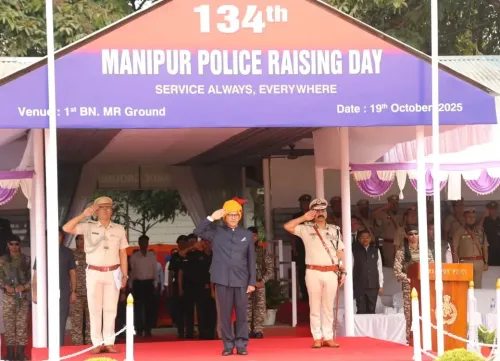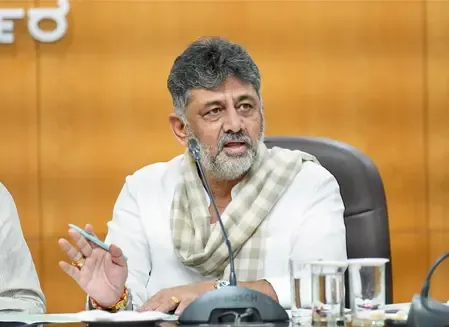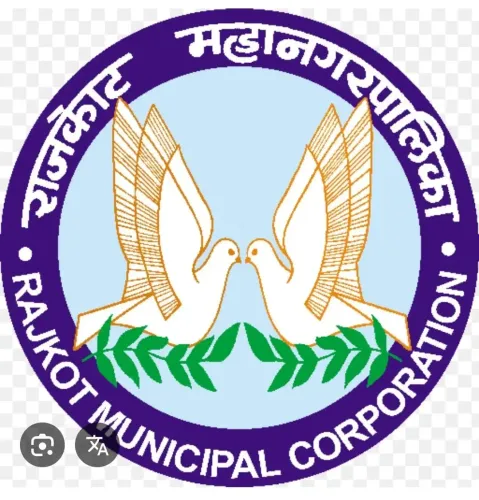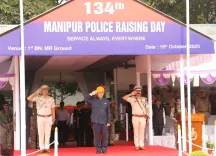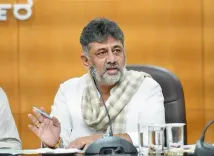'Is Rahul Gandhi Only Fit for the Opposition?' Pralhad Joshi's Response to Congress on GST Reforms
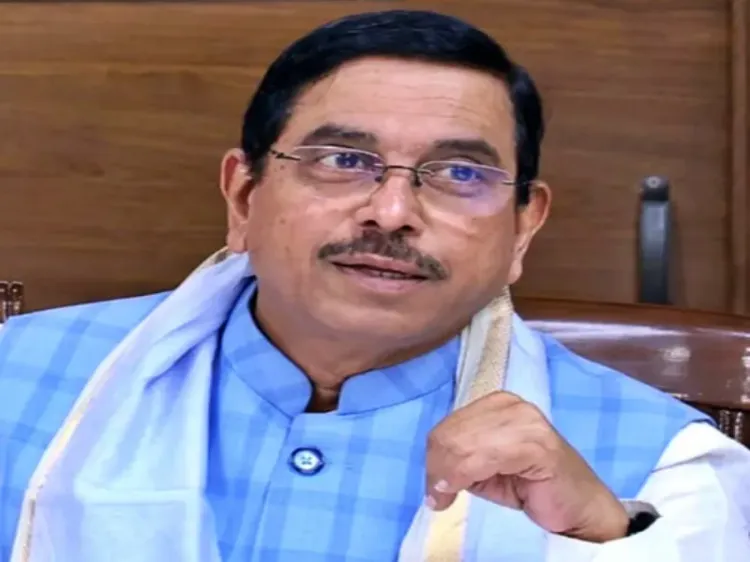
Synopsis
Key Takeaways
- Rahul Gandhi criticized by Pralhad Joshi.
- GST reforms simplified from four tiers to two.
- Zero percent tax on many food items.
- Support for middle-class families through tax reductions.
- Government distributing free rations to citizens.
New Delhi/Bengaluru, Sep 4 (NationPress) In response to the Congress' assertion that the government had to follow Leader of Opposition Rahul Gandhi’s suggestions on GST reforms, Union Minister for Food, Public Distribution, and Consumer Affairs Pralhad Joshi commented that the former head of the venerable party is a failed student who deserves to remain in the Opposition permanently while offering advice.
During an interview with IANS in Delhi on Thursday, Joshi stated: “Rahul Gandhi claims that his guidance was considered in GST reforms. I wish to highlight two points regarding this. Firstly, only the input of a successful or top-performing student is worth considering if you are copying. Rahul Gandhi is a failed student. Secondly, let him stay in the opposition indefinitely and keep providing us with advice. Those are our wishes.”
He further remarked: “To those commenting on GST reforms, I want to remind them that GST was never implemented during the decade of UPA governance. States not ruled by UPA opposed it, and even Congress-ruled states resisted GST implementation during the UPA period. Prime Minister Narendra Modi successfully implemented GST for the first time. Despite numerous challenges, he accomplished this. Initially, it featured a four-tier structure; it has now been simplified to two tiers. Additionally, most food items, ready-to-eat meals, and food-related products — such as roti or dosa at a hotel — are taxed at zero percent.”
Joshi detailed that other food items now fall within the 0–5 percent range, with the next tier at 18 percent, and many items from the previous 28 percent category have been moved to 18 percent.
“Numerous items in the health and education sectors, including maps, charts, globes, pencils, sharpeners, exercise books, and notebooks, have been shifted to the zero percent category. Almost all milk products are now tax-exempt. This will significantly assist at a time when inflation in the nation is at its lowest, at 1.55 percent. Furthermore, the Central government is distributing 5 kg of free rations to 80 crore citizens across the country,” he explained.
He added that the tax reductions will aid middle-class and poor families in managing expenses such as children’s education and nutrition, ultimately enhancing their quality of life.
“It is acceptable if higher collections are not made to the treasury, as the common man will reap substantial benefits,” Joshi emphasized.
On renewable energy, Joshi pointed out that GST on solar, wind, tidal, and biogas has been lowered from 12 percent to 5 percent. Battery and storage systems, including non-lithium batteries, have decreased from 28 percent to 18 percent. For electric vehicles, the 5 percent GST rate has been maintained.
“In summary, renewable energy will receive a significant boost, and electricity prices will decrease,” he underscored.

